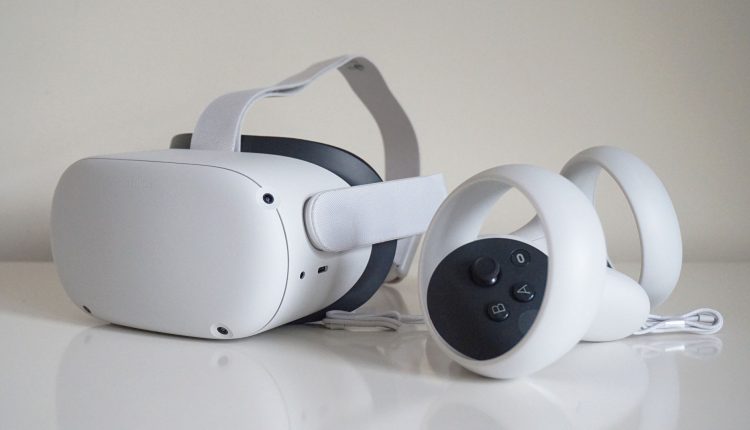Oculus Quest 2 is getting 120Hz help in a future replace
According to Facebook Reality Labs, the Oculus Quest 2 will almost certainly support a refresh rate of 120 Hz in an upcoming update. When asked if the standalone headset would get another refresh rate boost in a recent Q&A on Instagram (good place, RoadToVR), Andrew Bosworth, vice president of Facebook Reality Labs, gave a thumbs up in response.
Given that this is Facebook, a thumbs up could mean that he “liked” the idea of 120Hz support instead of confirming non-verbally that it is definitely coming. Most likely, however, it means that Oculus Quest 2 will get 120Hz support, especially given that Oculus recently updated the virtual reality headset to support a 90Hz refresh rate back in November last year. When the headset originally launched in October 2020, its refresh rate was limited to just 72 Hz.
Unfortunately, Bosworth didn’t elaborate on when the Quest 2 might actually get its 120Hz support, but I would imagine it will likely be introduced in a future software update – similar to the Quest’s 90Hz update 2. It is also likely that Facebook will offer developers the option to run their games at 72 Hz, 90 Hz, or 120 Hz, depending on how demanding they are. Running games at 120 Hz will likely affect the headset’s battery life, which is only around 2-3 hours in the default settings.
Of course, when the Quest 2 gets its 120Hz support, its specs will be surprisingly close to what’s available on the much more expensive Valve Index. This is our current recommendation for those looking to buy the best VR headset money can buy. This PC-based headset can also run games at 80Hz, 90Hz, and 120Hz – although its experimental top 144Hz mode still gives it an edge over Quest 2.
Now that the Oculus Link is working properly, you technically no longer need a big, expensive index to play PC-based VR games like Half-Life: Alyx – and when the £ 299 / $ 299 Quest 2 offers similar deals, refresh rates and an experience as smooth as the Index (assuming you have a PC powerful enough to handle those high frame rates) could be a serious blow to Valve’s flagship VR headset.
It’s an interesting development, though, and I look forward to trying it out as soon as it arrives. Of course, the Quest 2 still has the age old problem of needing a Facebook account to use it, which … yes. Not good. With the Rift S drawing to a close and the disappointing Vive Cosmos offering little to no decent competition, these days it’s a great choice between the Quest 2 and the Valve Index for VR headset buyers and when it means signing up for one If I have a blank Facebook profile and don’t want to spend an extra £ 700 / $ 800 then I am probably increasingly tempted to take the bullet and rejoin Facebook because of my wallet.


Comments are closed.